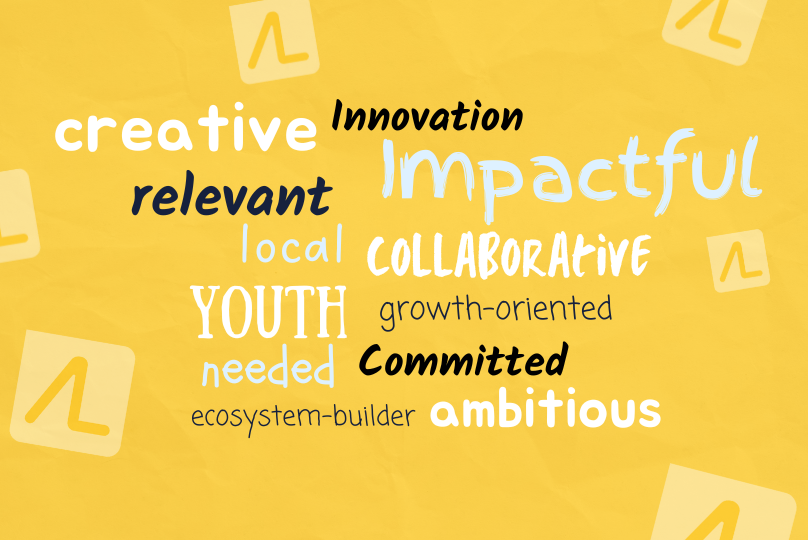NEWS
September 2, 2022

IN BRIEF
During the second quarter of 2022, Accountability Lab engaged The Better Org to conduct an organizational assessment of our work over the past ten years since we launched in Nepal in 2012. The objective was to assess the Lab’s strategic positioning within the accountability field and interrogate the impact of our programming in the 11 targeted countries to which we have since expanded. This report noted that Accountability Lab is viewed in a very positive light by staff, board, partners, funders, and programme participants. This is particularly in relation to our strategic approach to programme design and delivery, as well [...]
SHARE
During the second quarter of 2022, Accountability Lab engaged The Better Org to conduct an organizational assessment of our work over the past ten years since we launched in Nepal in 2012. The objective was to assess the Lab’s strategic positioning within the accountability field and interrogate the impact of our programming in the 11 targeted countries to which we have since expanded.
This report noted that Accountability Lab is viewed in a very positive light by staff, board, partners, funders, and programme participants. This is particularly in relation to our strategic approach to programme design and delivery, as well as AL’s values-centred culture. Our outputs are viewed as impactful and effective for programme participants at a personal level, in terms of how networks and communities are created, and in terms of creating subtle shifts in behaviour and policy at an organisational and community level.
The review was completed to also assess how to build sustainably on our existing strengths in order to generate more value for current and future program participants. The results of the assessment solidified the Lab’s uniquely positive approach in the field and also presented a few challenges around how to purposefully expand our programming and impact, which we explore below.
Strengthening AL’s strategic approach
Encouragingly, the Lab is unanimously viewed as authentically values-driven and purpose led by staff, participants, board members and partners who contributed to the assessment. AL’s positive deviance strategy around ‘naming and faming’ our Integrity Icons for instance, as well as our people-centered approach to developing and implementing projects, were some of the key reasons behind this finding. The Lab’s translocal model is also seen as a significant strength which places the organization in a unique position to generate greater sustainable impact with our global programs.
On the flipside, there were some suggestions as to how AL can further exploit these strengths as it grows. This relates to working more closely with key policy makers and governments to effect more tangible changes, and operating with more visibility on the global stage. The lesson for us here would be in communicating our impact more broadly by leaning deeply into strategic advocacy issues and working with partner organizations to help amplify the outcomes of our work.

Extending mentoring and networking opportunities
AL’s programmatic strengths included the consistent focus on inclusion, proactive solutions and positivity. The use of arts like music and film to engage young people was highlighted as one particularly effective programming stream. Participants reported that the programs they completed led to sustainable changes in their personal growth and in related organizational capabilities for the communities with which they worked. The Civic Action Teams (CivActs) were viewed as one of the most impactful programmes, with the Accountability Incubator, Integrity Icon, and Open Gov Hub collaboration spaces also resonating strongly with respondents. Participants were almost unanimous in their confirmation that they would participate in another Accountability Lab program in the future.
One area identified for improvement, however, was the provision of more targeted mentorship and coaching facilities for participants in the Incubator program. There were also valuable suggestions around providing additional networking opportunities within and between programs.
Operational areas of excellence improvement
The staff at our network labs were found to be technically competent and committed, especially for providing ancillary support in the way of assistance with participant funding proposals and leadership development. Participants also appreciated them for providing physical platforms and spaces for youth convenings, and providing critical financial Covid-19 support measures.
An important area of improvement related to developing more consistent and longer-term fundraising capacity. The organization’s frugal approach to budgeting was seen as demonstrating a necessary commitment to the issues at hand, but sometimes impacted the resources available to deliver programs. Another issue raised was the need for more continuous capacity building opportunities for staff in non-leadership positions.
Strategic questions for consideration
The report culminated in a few important questions for the Lab to consider as it grows its programs and geographic footprint. Firstly, how does AL expand its influence on the global stage while maintaining its bottom-up approach to programming and impact? Secondly, a challenge was posed around how the Lab could become a stronger movement builder and more intentional political advocate. Related to this, what competencies would we need to develop to ensure we are adequately able to engage with a wider array of key policy makers? This is a critical question, especially as it occurs against a backdrop of shrinking civic space in almost all our network labs.
The Lab’s new strategy for the next three years offers the ideal opportunity to effect some of the changes and internal shifts needed to meet these challenges in a sustainable way. Key will be ensuring that the organization maintains our competitive advantage while strategically positioning ourselves to create greater impact for our staff, participants, donors and partners in the coming years.
*The Better Org undertook data collection from March to May 2022. Five respondent groups were identified to participate in the assessment data collection process, including AL staff, management, board members, participants, partners, and funders. The data collection utilized a combination of qualitative and quantitative data, including focus groups, surveys and one-on-one interviews.
